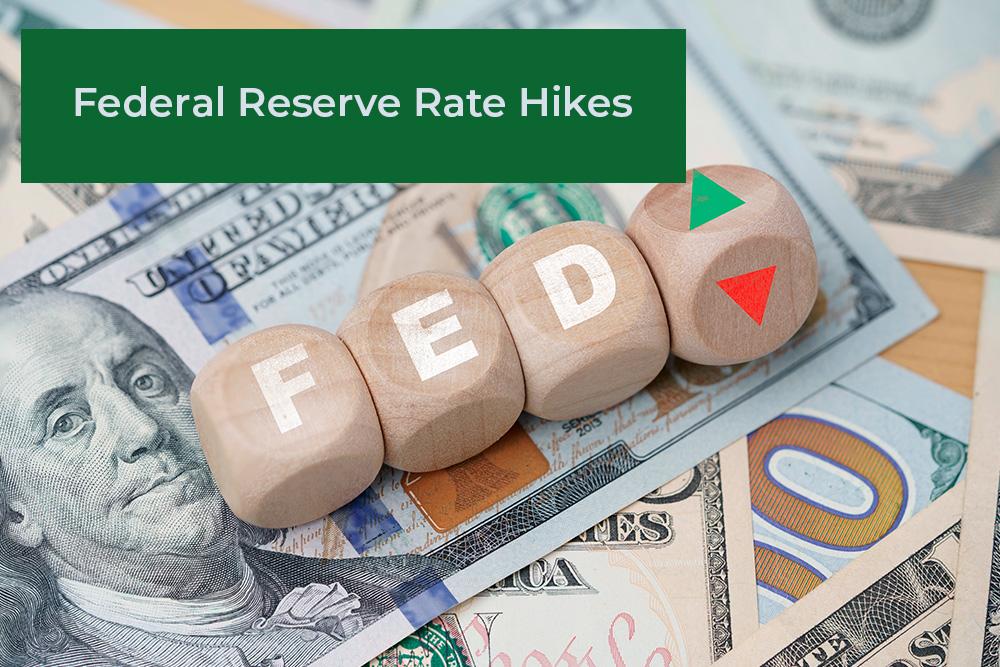There are several factors that affect the price of home loans. Interest rates play a role in determining how expensive your home loan is, which is why it’s important to pay attention to interest rates as you are shopping for a home loan. Naturally, the higher interest rates are, the more you’ll end up paying for a home loan. So what happens if interest rates are high when you’re shopping for a loan?
Federal Reserve Rate Hikes

Median interest rates for home loans were 4.88 percent in 2022, which is a significant increase from 3.00 in 2021. Those rate increases might not sound like a big deal, but they add up quite a bit over the course of a loan’s lifetime. The Federal Reserve started a stricter monetary policy in 2022, and prospective homeowners are still feeling the impacts of those rate hikes, as current mortgage rates in Las Vegas are still high.
Who is Affected?
Anyone can feel the negative effects of a mortgage interest rate hike. However, prospective homeowners who earn less than 80 percent of the median income in the area are hit the hardest by interest rate hikes. Currently, mortgage rates are about seven percent, which means that home buyers with fewer financial resources will have the hardest time buying and financing a new home.
Housing Market Supply and Demand
Not surprisingly, interest rates affect both supply and demand in the housing market. When mortgage rates increase, so do monthly housing payments. Potential buyers may find that the increase in interest rates, and the amount they owe on housing payments each month, can end up being cost prohibitive. Fewer homes may be available to prospective home buyers if they can’t afford to buy a new home in a certain area due to surging interest rates and home loan prices. For people who currently own homes, there is little incentive to sell a home when interest rates are high, as they’ve already locked in lower interest rates and tend to hold onto those favorable interest rate prices.
Rate Increases Lead to More Expensive Mortgages

As with many things, current mortgage rates in Las Vegas will have the same impact on your monthly housing payments as rate hikes have in the past. Federal rate increases do ultimately translate to higher loan amounts, monthly payments, and mortgage rates. In 2021, federal fund rates ranged from 0 – 0.25 percent. During that same time, the average rate on a 30-year fixed-rate mortgage was 2.88 percent. In 2022, the federal funds target rate ranged from 1.50 – 1.75 percent. That increase caused mortgage rates for a 30-year fixed-rate mortgage to increase to 5.51 percent. In 2023, mortgage rates increased by 0.75 percent
How Expensive are Mortgages?
Monthly mortgage payments for new loans have increased with the combination of rising interest rates and demand in the housing market. Principal and interest payment rates have increased by about 44 percent since 2022, which equates to about $600. Rates are an astounding 79 percent higher, which is about $865, since before the pandemic. A seemingly minor increase of two percent in interest rates adds about $115 to your monthly mortgage payment for every $100,000 that you pay in a 30-year loan.
Is it Harder to Qualify for a New Mortgage?
At a time when mortgage rates are higher, you may find that it is more difficult to qualify for a new mortgage. When you have to spend more each month, it can be harder to make those monthly payments, which in turn makes it more challenging to qualify for a home loan. That’s true even if the price of the home you want doesn’t change. Mortgage rates affect your debt-to-income (DTI) ratio, which is a major factor that lenders look at when you’re going through the mortgage approval process. Prospective lenders generally don’t want your housing payments to account for any more than 28 percent of your gross monthly income. Collectively, your monthly debt payments should not exceed more than 36 percent of your gross income.
How to Reduce Your Mortgage Costs

Fortunately, it is still possible to buy a home even at a time when interest rates are on the high side. There are even steps you can take if you want to make your monthly mortgage payments as low as possible, including:
- Make a larger down payment
- Eliminate private mortgage insurance (PMI)
- Get a short-term mortgage
- Compare quotes
- Improve credit score
The standard minimum down payment amount is 20 percent, although some mortgages may allow for an even lower down payment. It never hurts to make more than the minimum down payment if you can, and that’s especially true if mortgage interest rates are high. When you put down more than the minimum amount required for a down payment, you’ll end up with a lower loan-to-value (LTV) ratio. If you have lower loan amount compared to market value of the home you want to buy, you’ll appear less risky to lenders, and you can get lower interest rates as a result.
If you do get a loan with a down payment requirement under 20 percent, you’ll usually need to pay an added fee called private mortgage insurance (PMI). This added payment protects the lender in case you default on your loan or can’t keep up with your monthly payments. Private mortgage insurance rates vary, but they usually amount to .5 percent to two percent of the total loan amount. PMI payments are normally a monthly expense.
Another way to reduce your mortgage payments is to get a shorter-term loan. Loan durations vary, but the most popular timeframes are 15-year loans and 30-year loans. When you’re facing higher interest rates, you may want to get a loan with a shorter duration. Shorter-term loans generally have lower interest rates than long-term loans. You might end up spending more on your monthly payments, but you could save money on interest rate charges if you choose a shorter loan, such as a 15-20 year loan.
Shopping around to compare rates can also help you get a good deal. Comparing quotes from different lenders helps you see what loan offer is best for your situation. Just by shopping around, you can save up to $300 per year on your mortgage payments, which translates to big savings over the loan’s lifetime!
Lastly, if your credit score is less than ideal for a mortgage, work on improving it. The higher your credit score is, the more likely it is that you’ll get a lower interest rate. A FICO credit score of 650 is generally recommended for buying a home, but even better if yours is higher.
Contact a knowledgeable and reputable loan officer to find out more about navigating interest rates and buying an affordable home.









